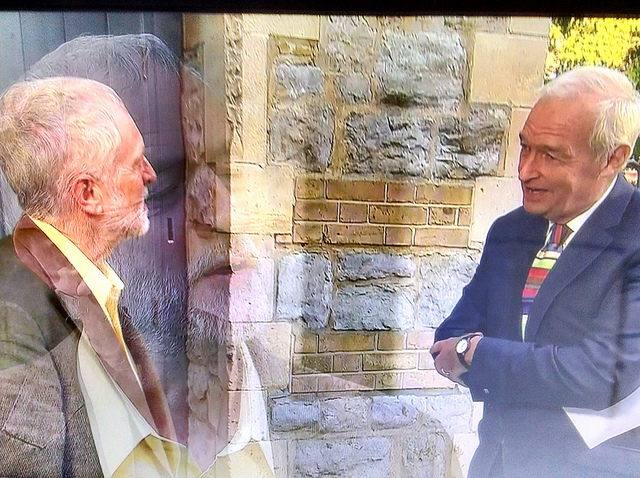Jeremy Corbyn’s rise shows the true value of political parties
The process that led to the election of Jeremy Corbyn was so important because it questioned the model of political parties as electoral machines. It showed that a party can be a living association, writes Lea Ypi.
One of the most curious aspects of the Jeremy Corbyn phenomenon is how the new Labour leader seems to irritate, provoke, offend and enrage just about everyone, to his left, to his right and in the centre. If he fails to sing God to save the Queen, he is a threat to national security; if he promises to do so in the future, he has already sold out his republican values. If he takes no stance on EU membership or if he refuses to press the nuclear button, he has forsaken any responsibility to govern; if he pledges to keep the country in or if he agrees to compromise on Trident, he has betrayed the workers’ cause.
Given the amount of criticism Corbyn receives, whether through his actions or omissions, one wonders how he managed to collect the 60 per cent of Labour votes that left him with the thankless task of leading the opposition.
But the more we focus on Corbyn the man, the less we understand the process that brought him where he is. The significance of that process does not just lie in the extraordinary amount of energy he injected into the leadership debates, or in the surprising ability to engage previously alienated political activists. It reminds us what a political party is really for, and why democracy needs parties at all.
Political scientists, the media and politicians alike have long treated parties as electoral machines whose sole purpose is to aggregate people’s preferences, select representatives, and try to obtain a share in government. The politics of recent years has never been about how commitments can shape politics, but about how to attract the voter that has no commitments; not about what kind of economy people might want, but how to save the one they have; not about what kind of foreign policy is justified, but about rallying people against threats assumed to be known. This relegated ordinary citizens to the role of passive recipients of decisions that were already made: they could approve or reject the answers, but they could never shape the questions.
Yet, to understand political parties as electoral machines, with the voting public passively standing by, is to profoundly misunderstand their democratic function. The process that led to the election of Corbyn was so important because it questioned this model of parties as machines. It showed that a party can be a living association, where people with similar values and commitments make common decisions, take joint risks and distribute collective responsibility for shaping future political life.
People who voted for Corbyn voted against the personalisation of politics, against a model of the party exclusively focused on the media appeal of the leader, and against placing exclusive emphasis on how to win elections. They voted in favour of political campaigns based on principles, for a return to substantive equality, for the vindication of ideals of social justice and for a new emphasis on international solidarity. They voted to re-appropriate the radical roots of the Labour party as an agent of social transformation, guided by a process where everyone, not just the leader, is understood to be responsible for the final outcome.
Those who ask if Jeremy Corbyn can win elections ask the wrong question. Those who condemn the errors of a single man, seek refuge in the critique of individual political acts, or expect all the answers to already be available (whether on the economy, foreign policy, social justice or domestic security), misunderstand or even damage the nature of the democratic process, in which Corbyn is only a symbol. They not only fail to take responsibility for change, but by reducing democracy to the performance and decisions of one individual, they undermine the future choices of all their fellow-citizens.
—
Note: This post represents the views of the author and not those of Democratic Audit or the LSE. It originally appeared on the LSE British Politics and Policy blog. Please read our comments policy before posting.
—
 Lea Ypi is Associate Professor in Political Theory in the Government Department at the London School of Economics.
Lea Ypi is Associate Professor in Political Theory in the Government Department at the London School of Economics.






 Democratic Audit's core funding is provided by the Joseph Rowntree Charitable Trust. Additional funding is provided by the London School of Economics.
Democratic Audit's core funding is provided by the Joseph Rowntree Charitable Trust. Additional funding is provided by the London School of Economics.
#labour #bbcnews #uk #ukpolitics #jeremycorbyn
Jeremy Corbyn’s rise shows the true value of political parties https://t.co/eBDjdveeT3
[…] Here-are-the-four-most-common-misconceptions-about-me-and-my-campaign. Jeremy Corbyn. Home – Jeremy Corbyn MP. Jeremy Corbyn for Labour Leader. Jeremy Corbyn MP. Jeremy Corbyn. Jeremy Corbyn’s rise shows the true value of political parties. […]
‘#Corbyn’s election shows parties can be living associations that shape politics’, @lea_ypi via @democraticaudit https://t.co/NJpqT3bZ3M
The @UKLabour leader election was important because it questioned model of political parties as electoral machines https://t.co/IDW3BRz7ni
Jeremy Corbyn’s rise shows the true value of political parties | On Importance of Political Parties https://t.co/SSeM5P2Gbb
The rise of @jeremycorbyn shows the true value of political parties, writes @lea_ypi https://t.co/B5W1yJwR4M
The more we focus on @jeremycorbyn the man, the more we lose site of what this movement means…
https://t.co/GQTtvh7aXv
#No2Austerity
Jeremy Corbyn’s rise shows the true value of political parties https://t.co/8GkdWFT9ZB
“Those who ask if Jeremy Corbyn can win elections ask the wrong question.” https://t.co/Om1HByxY1K
Jeremy Corbyn’s rise shows the true value of political parties https://t.co/4SyI0oK8vu https://t.co/IPPYCQQllV